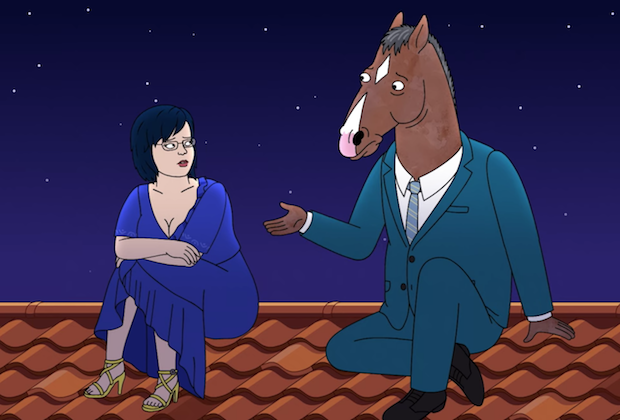BoJack Horseman: Mental Health Portrayed in Television
Photo by Google
BoJack Horseman’s sixth and final season premiered on January 31st.
Heart clenching and overall captivating, Netflix original BoJack Horseman can not be compared to any other television show. The storyline follows BoJack Horseman, a former 90s sitcom star as he deals with the absolute chaos of being in the spotlight, some of which is his own doing. As offputting the idea of an adult animated cartoon series is to some, the show is as realistic and deep (if not more) then the other television out there. The characters and their experiences are played in such a way that you sometimes forget you’re watching a cartoon horse on the screen, but only hear the voice behind it. While the show is a comedy, the comedic effect is equally played as the dark humor and overall dread this show emits. This dread is what gives the cool sensation of honesty, triggering the emotions that sometimes needs to be felt. Over the shows, six seasons and season six itself, the darkness of the story gets met with the representation of mental illness.
BoJack Horseman’s vivid battle with addiction and depression are shown throughout the series. Rather than portraying Horseman as a down on his luck character who faces hardly any hardships and lives a wonderful life despite his addiction and depression, the writers decided to portray him as the narcissist he truly is. The writers show the effects mental illness can have, resulting in Horseman being verbally abusive to the ones close to him. He is also unwilling to get help for his problem, using drugs and alcohol as a crutch and a scapegoat for some of his former trauma and mental illnesses. This use of drugs and alcohol leads to addictive behaviors which leads to the cycle continuing more and more until it is finally to a point where it seems like it would never stop. While this behavior and cycles like Horsemen have are painfully recognizable for many, the show’s messages our found through the ones closest to Horsemen, many of whom have their struggles. Because even though Horseman’s hardships and difficulties, he always has people supporting him. People who help him get the help he needs, such as rehab and other various positive coping mechanism to help be the best horse he can be.
Another character who deals with mental health issues is Diana Nguyen, sone of BoJacks closest friends. Nguyen deals with anxiety and depression. Nguyen’s depression is a lot different from Horseman. While Horsemans is more out and loud about his troubles, Nyguens is a lot quieter. She is less defined by her troubles, but they still impact. Her trauma and struggle to find her voice weighs her down, putting pressure she doesn’t know how to relieve. Her childhood trauma is damage that leaves her full of cracks, ones she doesn’t know to put back together.
The most thought-provoking and striking mental health moment is a poem called “The View From Halfway Down” that is read aloud in Season Six, Episode 15.
The weak breeze whispers nothing
The water screams sublime
His feet shift, teeter-totter
Deep breath, stand back, it’s time
Toes untouch the overpass
Soon he’s water-bound
Eyes locked shut but peek to see
The view from halfway down
A little wind, a summer sun
A river rich and regal
A flood of fond endorphins
Brings a calm that knows no equal
You’re flying now
You see things much more clear
Then from the ground
It’s all okay, or it would be
Were you not now halfway down
Thrash to break from gravity
What now could slow the drop
All I’d give for toes to touch
The safety back at top
But this is it, the deed is done
Silence drowns the sound
Before I leaped I should’ve seen
The view from halfway down
I really should’ve thought about
The view from halfway down
I wish I could have known about
The view from halfway down
This poem, written by Bojack writer Alison Tafel, unravels the truth about suicide. “The View From Halfway Down” candidly expresses the emotional path of suicidal ideation, from the endorphins at first, to to the dismay and panic and to the regret as you finally reach the point of no return. This poem captures the darkness of suicide, and how that why people may feel like they truly want to die, death itself isn’t the true answer.





